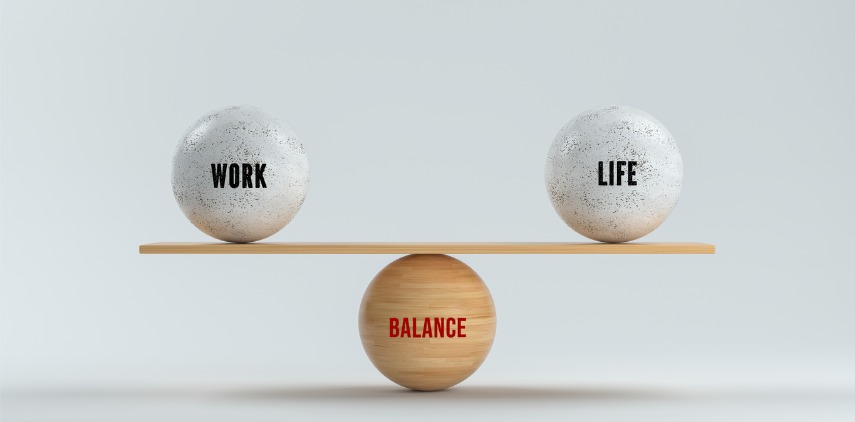Hustle culture is the idea that to be successful, you must constantly work harder, work longer hours, and never give up. However, this culture has caused many to ignore a good work-life balance to progress in their career and earn more money.
When does hustle culture become a toxic way of living that impacts our work-life balance? How can we find a healthy balance between our professional and personal lives?
Learn more about hustle culture and its effects, the importance of having good mental health, and how good mental health provides a positive work-life balance.
What is Hustle Culture?
Hustle-culture refers to the attitude that hard work and long hours are the keys to success.
This mentality is often driven by the belief that you’re falling behind if you’re not working constantly. A persistent view is that working 40+ hours weekly in a full-time position is the only way to be productive. While there’s no doubt that hard work can be rewarding, overworking yourself can be harmful to both your physical and mental health.
For many people, it leads to burnout and a constant feeling of stress and anxiety. It can also undermine your work-life balance, making it difficult to enjoy leisure time or spend time with family and friends.
What Effect Does Hustle Culture Have on Mental Health?
As work culture continues to evolve, the impact of mental health in the workplace has become more critical. Whether it is menial daily tasks like answering emails or tough manual labor like digging ditches, everyone feels the effects of exhaustion and fatigue.
For many people, the pressure to always be working and constantly productive can lead to burnout and chronic stress. This can adversely impact your mental health, and it can even lead to depression and anxiety.
According to studies, this increase in stress and anxiety is due to rising levels of cortisol; a stress hormone released when your body goes into “fight or flight” situations. This stress-induced reaction has severe consequences for the body and mind.
If you’re feeling burnt out, it’s essential to take some time for yourself to relax and get high-quality rest. However, maintaining a healthy sleep schedule seems impossible due to the arduous hours many people endure for their work.
According to health.gov, lack of sleep raises stress and can increase your likelihood of getting sick and seriously hamper your ability to make decisions. You shouldn’t feel guilty for taking a break and shouldn’t feel like you need to hustle all the time.
There’s nothing wrong with taking some time off; you’ll be more productive when you return to work if you’ve taken some time to recharge.
How Does Good Mental Health Affect Your Work?
Good mental health is not only crucial for your well-being, but it can also have a positive impact on the workplace. Mentally healthy employees are more productive, engaged with their work, and more likely to stay with a company long-term.
Companies that promote good mental health among their employees see a return on investment through lower healthcare costs and higher productivity levels.
How to Find a Positive Work-Life Balance
The term “work-life balance” has become a buzzword in recent years as more people strive to find a way to maintain a healthy balance between their professional and personal lives. While there is no one-size-fits-all solution, you can do a few things to try to achieve a work-life balance that works for you.
One way to find a work-life balance is to list your priorities. What is most important to you? For some people, their job is their top priority, while their family or personal life takes precedence for others. Once you know your priorities, you can start making choices that reflect those priorities.
Another way to achieve a work-life balance is to set boundaries. If you know you need time for yourself outside of work, schedule that time and stick to it. Tell your boss that you have other commitments and cannot work late every night. And don’t be afraid to say no if someone asks you to do something outside your boundaries.
There is no right or wrong way to achieve a work-life balance. What matters most is finding what works for you. Switching to a low-stress job can help you meet your financial goals while allowing for a positive work-life balance. Low-stress jobs often offer remote work opportunities, vacation time, and health insurance.
Find a Career You Love With JobsFuel
If you want to be happy in your career, finding a job that suits your interests and personality is essential. Maintaining a positive work-life balance and good mental health is crucial to yourself and your career in the long term.
To find the best jobs for your lifestyle, check out jobsfuel.com today to get started searching for the best career that perfectly balances work and personal life.



